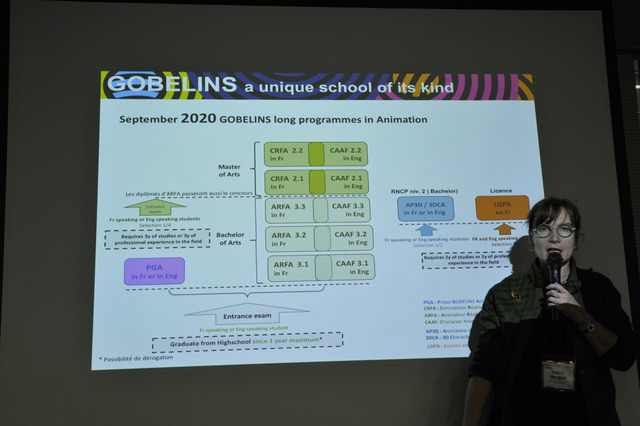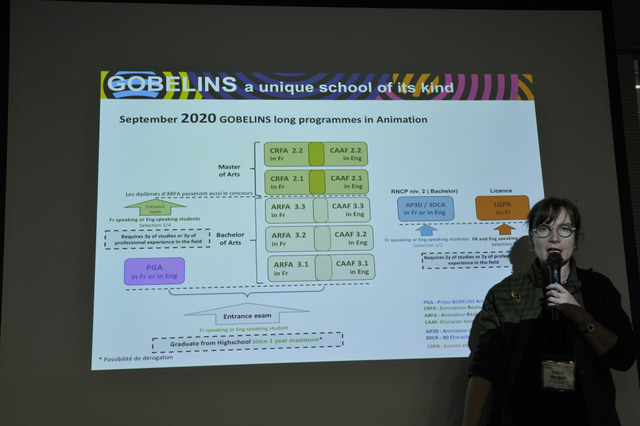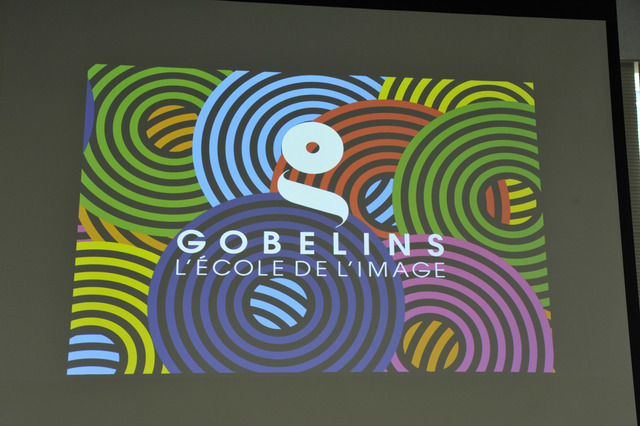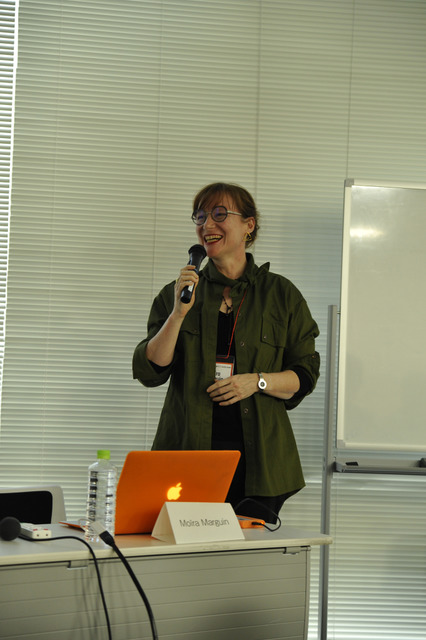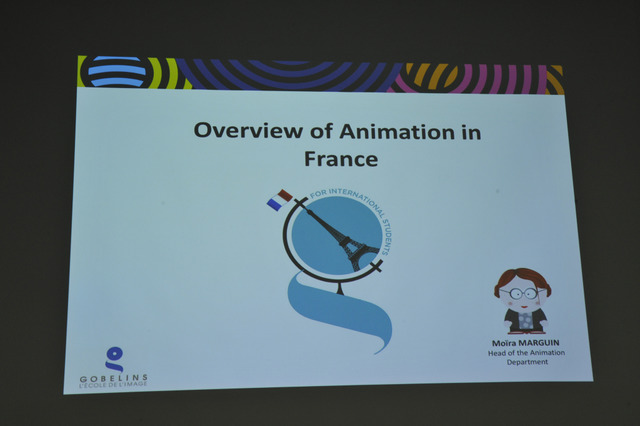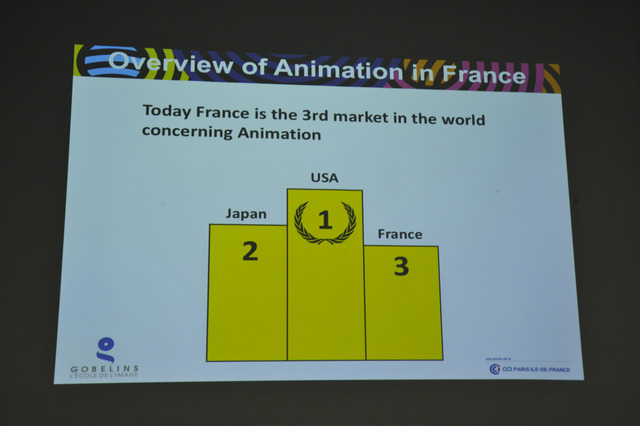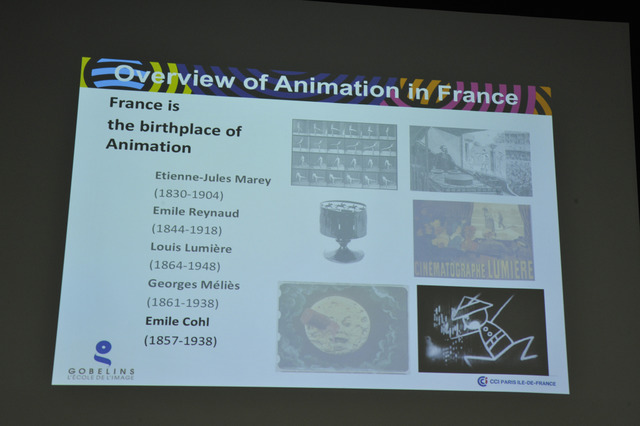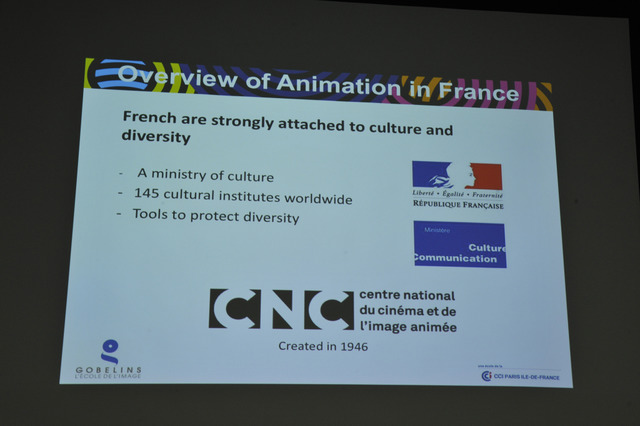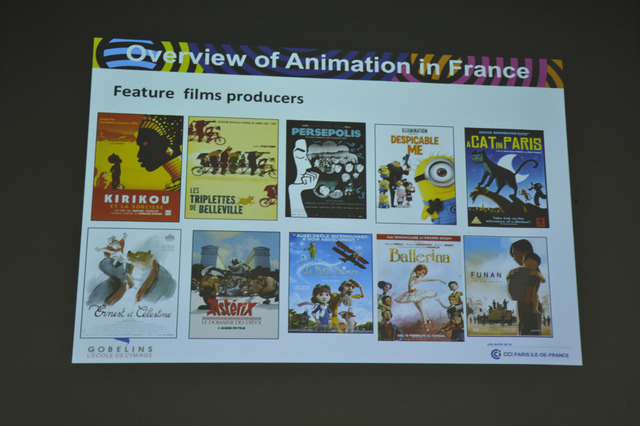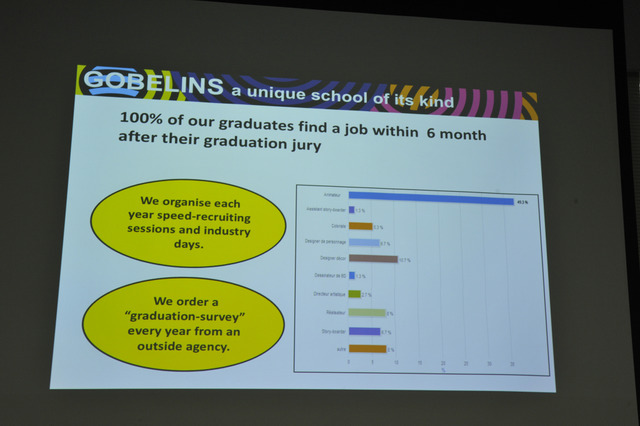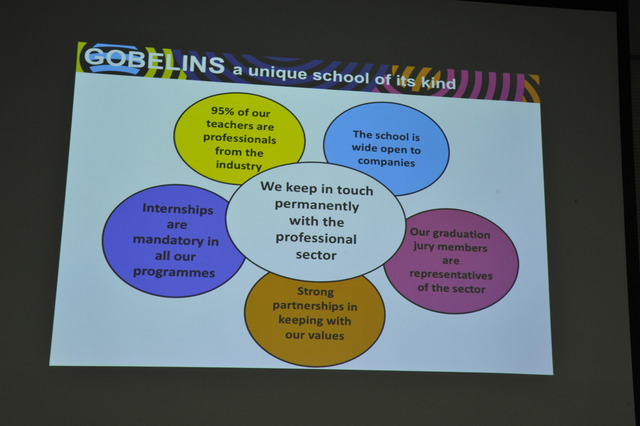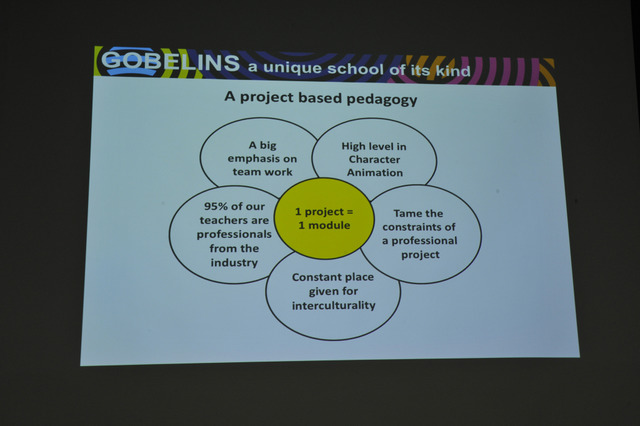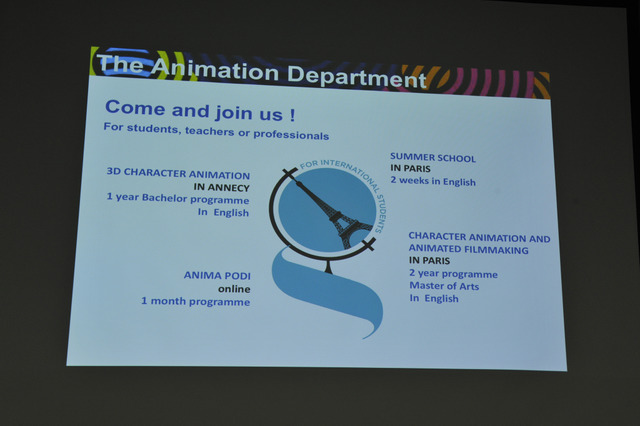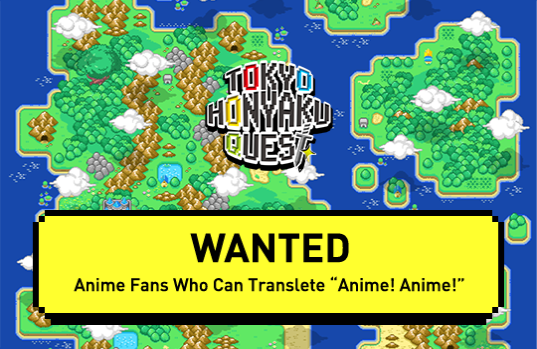The international conference of the future of manga and anime, “International Manga Anime Festival Reiwa Toshima (IMART)” was held from Fri, Nov. 15 to Sun, Nov. 17, at Toshima ward office. There were 24 sessions varying in fields such as education, technology, marketing, and journalism.
This is a report of the session held on the 16th, “Modern animation education of the world: The case of Gobelins, France”.
The education of personnel in the animation scene is a big issue all over the world. The same goes for Japan with not only colleges but also universities starting animation education.
Among all, Gobelins, the leading animation school in France, made the news in June with them making an academic-industrial alliance with Netflix, the American media service provider. What are their intentions?
Moira Marguin, the dean of the animation department of Gobelins, visited Japan to explain their goals and educational content. The anime chief producer of Netflix, Sakurai Taiki, also appeared on stage.
Moira began with the reasons why France is the third-largest anime-market in the world. (No.1 is the States and No.2 is Japan) Historically, France is where animation was born. Étienne-Jules Marey created the chronophotographic gun, the ancestor of movie cameras, in 1882.
Charles-Émile Reynaud followed by creating an animation device, “Praxinoscope”, the successor to the zoetrope in 1877, and in 1888 he creates the “Théâtre Optique”, a system to project the “Praxinoscope” on a screen. In 1998, the world's first animation, “Pauvre Pierrot” (Poor Pete) was screened.
The first “movie” was created by Louis Lumière, while Georges Méliès, “the world's first occupational film director”, brought filmmaking to full-scale. Émile Cohl was the one to create the first animation without any live-action.
Adding to all these historical backgrounds of animation, France is a country that values cultural diversity. Moira says this is one of the reasons animation is so popular in France.
In 1946, the “Centre national du cinéma et de l'image animée” (CNC), responsible for cinematic arts in France, was established in order to preserve the diversity of culture.
The agency was established by President Charles de Gaulle because of the strong influence of American film culture after the war.
Since the establishment, there has been a rule that more than 50% of the screening must be works of France in TV channels and movie theaters. Also, they have great subsidies for domestic productions, helping the protection of French culture.
Regarding the currentFrench animation, there are more than a few anime works with worldwide popularity, such as “Despicable Me” with French studios as subcontractors.
Online streaming services like Netflix have become more popular expanding the variety of content and creating more opportunities.
For example, Gobelins creates mature content that couldn't be broadcast on TV. However, streaming services have made it possible for these works to reach the audience.
What do they teach at Gobelins? It was established in 1974, as the first animation school. They have long supplied the personnel of major animation productions such as Pixar and Disney with their graduates.
All graduates are employed during the six months after graduating. Moreover, most of the graduates are able to work in animation related jobs.
The content of their education varies from animation skills, directing skills, background art skills, to storyboard skills. They also have classes to understand how the business industry works.
Gobelins has strong connections with the industry. 95% of the teachers practice their skills at the front line of the scene. The graduation projects are also judged by this cutting-edge personnel.
They don't have many classroom lectures. The students are given projects and most of the learning is through the practice of creation.
These projects are done in teams, making teamwork an important factor. The reason is simple, teamwork is one of the perks you will need in creating animation.
As part of the education, all students must do an internship. The curriculum is developed so the students will be able to create animation on their own, no matter what job they are aiming for.
The projects they give the students are also quite unique. No project is completely up to the students. There will be restrictions such as, “use a character that already exists”.
This is because creating animation as an occupation means you will always have to work under various restrictions. Gobelins always keeps in mind to foster personnel that are ready for work.
The music for the students' projects is from other students studying music at schools such as Conservatoire national supérieur de musique et de danse de paris.
The students are not only from France. They have many international students and some project teams have students each with a different nationality. They have tie-ups with schools all over the world and are planning to send students to Tokyo University of the Arts from spring 2020.
They have a three-year course equivalent to a bachelor, and a two-year course equivalent to a master's degree. Both courses have a choice of French and English. They have diplomas for the equivalent degrees; Bachelor of Arts or Master of Arts.
Finally, they talked about the purpose of their tie-up with Netflix. Gobelins will send their students to the original anime production team of the Tokyo office of Netflix. The point is that they are sending students to somewhere different than the United States.
Sakurai from Netflix says, “Unfortunately, people who graduate in Japanese schools stay in the Japanese anime scene, closing the door to the outside world. I wanted to make an opportunity for the students who are interested in Japan to interact.”
Moira says, “Currently there are various students coming from 18 countries at Gobelins. Many of them are interested in the Japanese culture and wish to work in Japan.”
This tie-up of Netflix and Gobelins may bring talented people from overseas to the Japanese anime scene.


